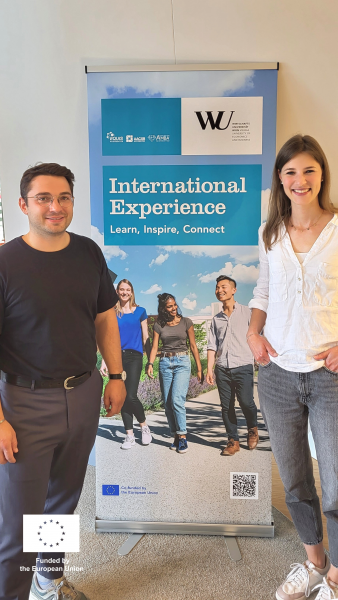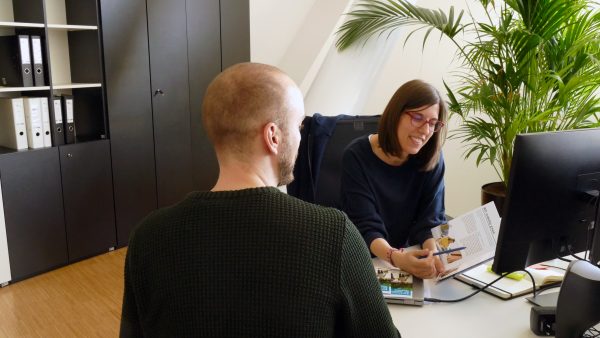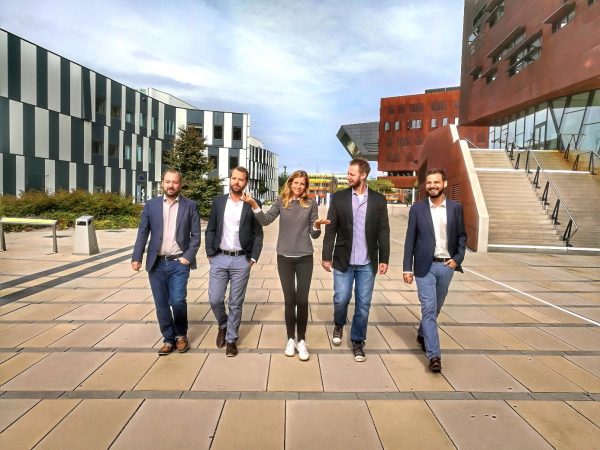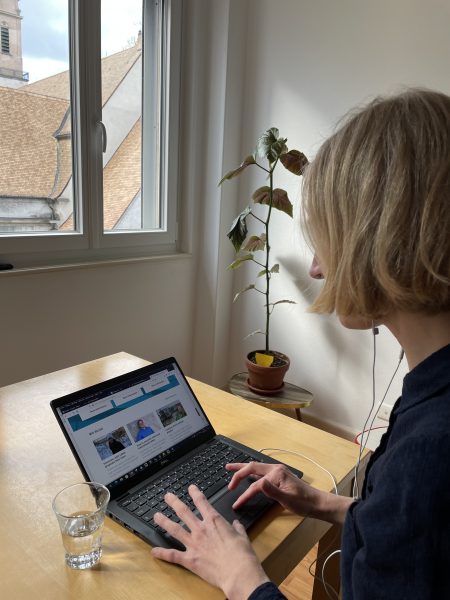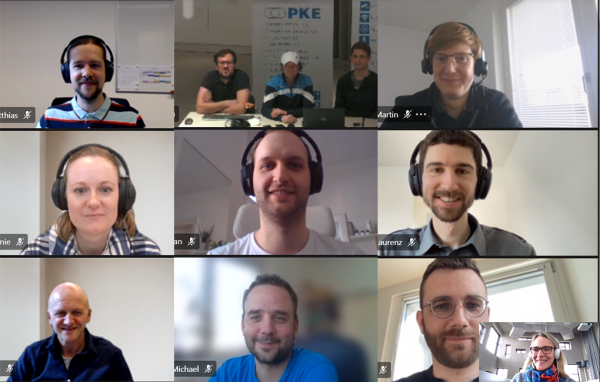Building personal resilience in the climate crisis: A transformative university course experience
In the summer semester of 2023, we embarked on the adventure of launching a new course at WU that would equip students with tools to navigate the psychological challenges of the climate crisis. We drew inspiration for this course from a program developed by the American NGO “The Good Grief Network”, which has developed a 10-week journey aimed at cultivating personal resilience, reflecting on the need for cultural change, and building a supportive community among participants.
The course is not a traditional class in which instructors teach students. Our role was to facilitate the group process, but the students also took responsibility for facilitating. The task of sharing insights and questions – what would normally be called teaching – was shared by us and the students in an egalitarian way.
Each week of the course focused on one of the 10 steps, ranging from ‘accepting the severity of the predicament’ to ‘reinvesting in meaningful efforts’. The sessions followed a structured format designed to foster engagement and connection among participants:
Each session began with a check-in round, followed by an embodiment exercise (such as conscious breathing) to ground everyone in the present moment. This was followed by a journaling exercise that gave participants the opportunity to reflect on questions related to that week’s step. The heart of each session is sharing, when participants are given an equal opportunity to voluntarily share their thoughts on the topic. This sharing is done in a setting of deep listening, which means that participants deliberately do not comment on what others have said, and refrain from giving advice, approval or criticism. In other words, the course is not a discussion group. Though it may seem counterintuitive, this deliberate abstention from debate allowed for a special quality of openness and collective wisdom to emerge that amazed facilitators and students alike over the course of the semester. Each session ended with a checkout focused on moving forward from the day’s reflections. Students also took turns as timekeepers and readers of a closing poem, fostering a sense of co-creation and shared responsibility.
What made this course unique was its flexibility to adapt to students’ needs and wishes. For example, at the request of the students, one session was held outdoors in the Prater Park. This helped us to shift our focus and experience the connection between humans and the environment. Another session introduced a powerful exercise, the chain of life: Each participant was given pieces of material that visualized the evolution of life on Earth, and we assembled these pieces together in silence. This activity encouraged participants to reflect on the vast span of global history and the relatively small role we as humans have played in it. It was a humbling reminder of our place in the universe.
In class, participants were encouraged to be mentally present and abstain from smartphone use and other distractions. This focus on mindfulness and presence allowed for a deeper exploration of participants’ inner thoughts and feelings. It sparked an interesting group dynamic, as several participants decided to limit digital distractions also outside of class, and reported positive effects on their ability to appreciate beauty in the world and foster connections.
Looking back on specific lessons that resonated with us, it is clear that this course was not just another academic endeavor. It was an emotional and intellectual journey that left a lasting impact. Protecting the privacy of each participant is an important part of the course philosophy, so we will not quote from specific student shares or reflection papers. But to summarize and paraphrase many of them, many participants reported something along the following lines: At one point, I had to acknowledge my inner struggles. I felt challenged, but also heard and understood. The course encouraged introspection and provided a calm that allowed me to reflect more on my thoughts and feelings. I realized that it is normal and common to feel overwhelmed by global crises, especially among the younger generation. However, I also learned that it is possible to accept these feelings and work on them. The other participants’ personal stories made the impact of climate change clearer and more urgent to me. This realization inspired me to commit myself to the fight against it.
The course also helped students come to terms with their desire for perfection. They learned to accept failures without engaging in destructive self-criticism, which proved motivating and humbling. Another valuable lesson was recognizing that goals are not the only measure of a meaningful life. Simply finding beauty in everyday things and taking breaks to rest can also fill life with meaning. Finally, the course emphasized the importance of accepting life’s uncertainties. While people can make choices, the future remains uncertain, and our lack of control must be acknowledged.
Interestingly, the fact that the course was conducted in English also had an unexpected positive effect. None of us are native English speakers. For many of us, it felt like speaking in a different language allowed for a more relaxed expression of thoughts and emotions, without the pressure of precision in our native languages. Maybe it even helped us think different thoughts.
Despite the intensity of the sessions, students expressed that they left each session with a positive outlook on the world, and as facilitators we felt the same. It was not the information presented in the course that stood out, because we all know about climate change and all sorts of well-being advice. The power of the course lies in the way the topic is processed, allowing participants to explore difficult issues in a uniquely calming, connecting and empowering way. We give space to somatic experience, in other words, to how we experience in and with our bodies, and to feelings and emotions. This approach offered a refreshing departure from the usual fact-focused, intellectual arguments at university, but – interestingly – resulted in intellectual reflections that were certainly not at a lower level than in a conventional class.
In conclusion, this university course on personal resilience in the climate crisis, inspired by the Good Grief Network’s 10-step program, proved to be a transformative experience. It equipped students with higher emotional intelligence, a sense of community, and tools for dealing with uncertainty. It challenged preconceptions and inspired meaningful action. Most importantly, students expressed that the course initiated both personal and societal transformation, and that it has had a lasting impact on how they approach contemporary challenges and crises.
We are really looking forward to this course starting for the second time this semester. The general enrollment period is from 9/29/2023 to 10/9/2023. We hope to again have as diverse, friendly, and wise a group as we had in our exciting premiere course. If you feel like you could use a booster to help you compost hard feelings about the state of the world, sign up!
By Leila Cornips and Florentine Maier














